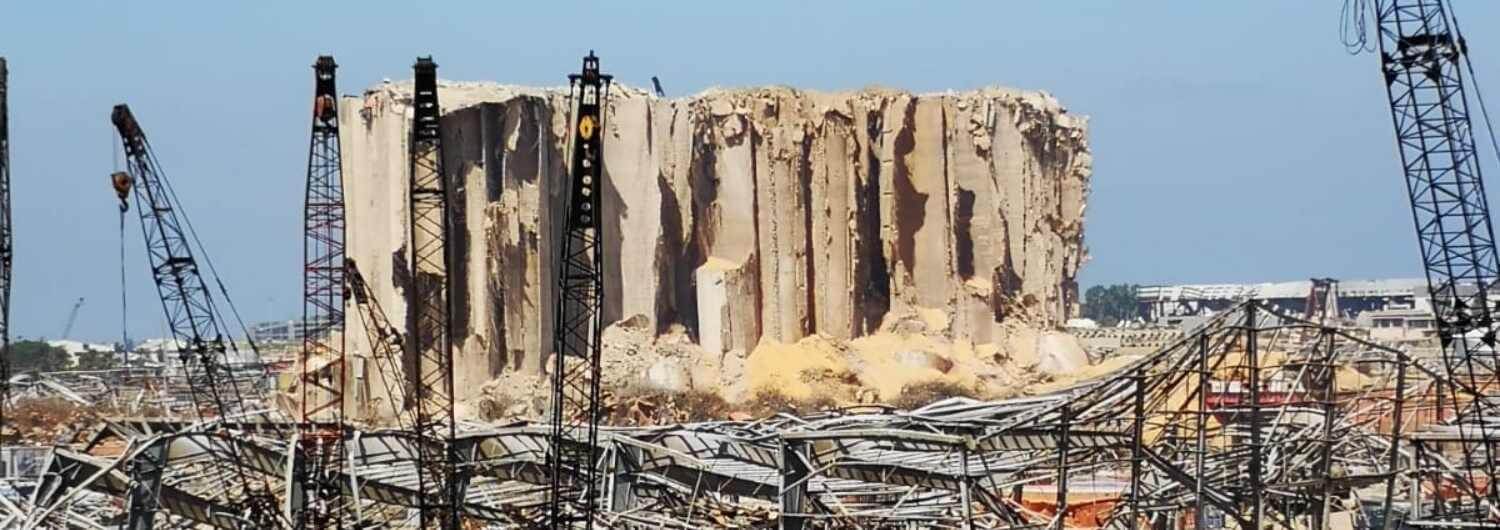News
Lebanon crisis: half of the population below the poverty line
04/08/21

On August 4th, 2020, the explosion in the port of Beirut affected the entire city.
In Lebanon, a country affected by a severe economic crisis and an unstable social context aggravated by the COVID-19 pandemic, the explosion of 4 August 2020 has led to a significant increase in immediate humanitarian needs. Today, more than half of the population lives below the poverty line.
The Beirut port explosion killed more than 200 people, injured more than 6,000 and severely damaged the infrastructure of Lebanon's capital: homes and businesses of some 250,000 people.
“One year after the Beirut blast, the situation is catastrophic for Lebanese, refugees and migrants. The poverty level is increasing, putting additional pressure on families who have been traumatized by the explosion. The economic, political, social, and sanitary crisis in Lebanon is alarming, and consequently access to water, sanitation but also to food security, nutrition and livelihood is a serious concern for the population. The response should guarantee access to basic needs while providing structural support in Beirut and in the overall country.”. Suzanne Takkenberg, Action against Hunger Country Director in Lebanon.
The economic crisis, further weakened by the Syrian conflict and the closure of trade routes and other structural deficits, has collapsed, and the banking and financial system is on the verge of collapse. The World Bank has recently noted that Lebanon is facing its worst crisis. As a result, unemployment and extreme poverty are on the rise, making it more difficult for local, migrants and refugee populations (Lebanon hosts more than 1 million refugees from the Syrian conflict and Palestinians) to meet their basic needs.
Access to essential services and livelihoods increasingly difficult
The pandemic unleashed by COVID-19 and containment measures such as border closures and movement restrictions have put thousands of people's lives at risk, limiting their ability to generate income. Similarly, access to basic water and sanitation services (that electricity & fuel issues are making it even more difficult), as well as the health system, have been affected for more than a year as a result of the as a result of the economic, political, social, sanitary crisis increased by the blast, which disrupted economic activity and access to public services and infrastructure.
Faced with this situation, families have been forced to adopt measures such as reducing the size and number of daily meals, restricting the consumption of some foods among the elderly or taking out loans. This has resulted in increased food insecurity and malnutrition rates. According to World Food Programme (WFP) data, 22% of Lebanese, 50% of Syrian refugees and 33% of refugees of other nationalities are food insecure.
Support for small and medium-sized enterprises key to reviving the economy and local commerce
In addition to the pressure that small and medium-sized enterprises were experiencing due to the impact of Covid19, and in many cases, damages as a result of the blast, many shops and businesses were forced to close during the further deepening socio economic crisis. "When the explosion happened, I was at home. I had a shift at the hospital, I didn't go because my whole house was damaged. My husband's feet were injured, the doctors wanted to amputate them," recalls Suzanne, who worked as a nurse until the disaster occurred. Since then, because of her husband's injuries, Suzanne quit her job and now runs the family business, a bakery she inherited from her father.
Micro, small and medium-sized enterprises (MSMEs) account for more than 97 per cent of all private enterprises in Lebanon and employ more than 50 per cent of the country's workforce. Thus, Action against Hunger's response has focused on supporting these businesses through cash assistance and professional advice, reviving household economies and local commerce. These companies are now facing more difficulties to continue working because of the electricity cuts & fuel shortage to show that structural support is also needed.
Action Against Hunger supported vulnerable survivors from the blast with emergency cash as well as MSMEs with cash grants and professional trainings to restart their economic activity while being able to provide for their families.
Action against Hunger has been working in Lebanon since 2006 with a team of more than 150 people and is one of the main organisations supplying, among others, water and sanitation to the informal settlements where 1.5 million Syrian refugees live. Among the objectives of our team is to improve the living conditions of people in vulnerable situations, ensuring access to basic water and sanitation, health and nutrition services, and strengthening their livelihoods.